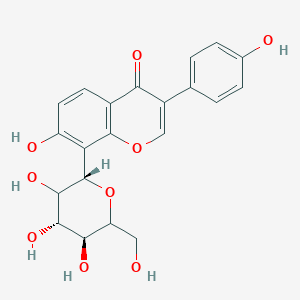| MeSH term | MeSH ID | Detail |
|---|---|---|
| Adenocarcinoma | D000230 | 166 associated lipids |
| Alzheimer Disease | D000544 | 76 associated lipids |
| Amnesia | D000647 | 12 associated lipids |
| Angina Pectoris | D000787 | 27 associated lipids |
| Angina, Unstable | D000789 | 14 associated lipids |
| Arthritis | D001168 | 41 associated lipids |
| Body Weight | D001835 | 333 associated lipids |
| Burns | D002056 | 34 associated lipids |
| Cataract | D002386 | 34 associated lipids |
| Cell Transformation, Neoplastic | D002471 | 126 associated lipids |
| Brain Ischemia | D002545 | 89 associated lipids |
| Ischemic Attack, Transient | D002546 | 42 associated lipids |
| Coronary Disease | D003327 | 70 associated lipids |
| Diabetes Mellitus | D003920 | 90 associated lipids |
| Diabetes Mellitus, Experimental | D003921 | 85 associated lipids |
| Diabetes Mellitus, Type 2 | D003924 | 87 associated lipids |
| Diabetic Nephropathies | D003928 | 39 associated lipids |
| Dyspepsia | D004415 | 5 associated lipids |
| Endometriosis | D004715 | 29 associated lipids |
| Fatty Liver | D005234 | 48 associated lipids |
SCHEMBL105486
Kakonein is a lipid of Polyketides (PK) class. Kakonein is associated with abnormalities such as Fatty Liver, Chronic liver disease, Morphologically altered structure, Hypertensive disease and Cardiovascular Diseases. The involved functions are known as protein expression, Extravasation, Liver damage, mRNA Expression and cell activation. Kakonein often locates in Body tissue, Hepatic, Microvilli, Cytoplasm and Membrane. The associated genes with Kakonein are TJP1 gene, CD14 gene, iberiotoxin, AT-Rich Interactive Domain-Containing Protein 1A and NKS1 gene. The related lipids are dehydrosoyasaponin I and Steroids. The related experimental models are Knock-out.
Cross Reference
Introduction
To understand associated biological information of SCHEMBL105486, we collected biological information of abnormalities, associated pathways, cellular/molecular locations, biological functions, related genes/proteins, lipids and common seen animal/experimental models with organized paragraphs from literatures.
What diseases are associated with SCHEMBL105486?
SCHEMBL105486 is suspected in Chronic liver disease, Hypertensive disease, Cardiovascular Diseases, Myocardial Infarction, Cerebrovascular accident, Fatty Liver and other diseases in descending order of the highest number of associated sentences.
Related references are mostly published in these journals:
| Disease | Cross reference | Weighted score | Related literature |
|---|
Possible diseases from mapped MeSH terms on references
We collected disease MeSH terms mapped to the references associated with SCHEMBL105486
PubChem Associated disorders and diseases
What pathways are associated with SCHEMBL105486
There are no associated biomedical information in the current reference collection.
PubChem Biomolecular Interactions and Pathways
Link to PubChem Biomolecular Interactions and PathwaysWhat cellular locations are associated with SCHEMBL105486?
Visualization in cellular structure
Associated locations are in red color. Not associated locations are in black.
Related references are published most in these journals:
| Location | Cross reference | Weighted score | Related literatures |
|---|
What functions are associated with SCHEMBL105486?
Related references are published most in these journals:
| Function | Cross reference | Weighted score | Related literatures |
|---|
What lipids are associated with SCHEMBL105486?
Related references are published most in these journals:
| Lipid concept | Cross reference | Weighted score | Related literatures |
|---|
What genes are associated with SCHEMBL105486?
Related references are published most in these journals:
| Gene | Cross reference | Weighted score | Related literatures |
|---|
What common seen animal models are associated with SCHEMBL105486?
Knock-out
Knock-out are used in the study 'MATE2 mediates vacuolar sequestration of flavonoid glycosides and glycoside malonates in Medicago truncatula.' (Zhao J et al., 2011).
Related references are published most in these journals:
| Model | Cross reference | Weighted score | Related literatures |
|---|
NCBI Entrez Crosslinks
All references with SCHEMBL105486
Download all related citations| Authors | Title | Published | Journal | PubMed Link |
|---|---|---|---|---|
| Bacanlı M et al. | The antioxidant, cytotoxic, and antigenotoxic effects of galangin, puerarin, and ursolic acid in mammalian cells. | 2017 | Drug Chem Toxicol | pmid:27461151 |
| Wu L et al. | Protective Effects of Puerarin against Aβ 1-42-Induced Learning and Memory Impairments in Mice. | 2017 | Planta Med. | pmid:27420352 |
| Li CH et al. | Puerarin promotes ABCA1-mediated cholesterol efflux and decreases cellular lipid accumulation in THP-1 macrophages. | 2017 | Eur. J. Pharmacol. | pmid:28576406 |
| Li X et al. | Puerarin and Amlodipine Improvement of D-Galactose-Induced Impairments of Behaviour and Neurogenesis in Mouse Dentate Gyrus: Correlation with Glucocorticoid Receptor Expression. | 2017 | Neurochem. Res. | pmid:28831640 |
| Bhuiyan MMH et al. | Radix Puerariae modulates glutamatergic synaptic architecture and potentiates functional synaptic plasticity in primary hippocampal neurons. | 2017 | J Ethnopharmacol | pmid:28734961 |
| Kim Y et al. | Pharmacokinetics and Safety of DW1029M, a Botanical Drug for the Treatment of Diabetic Nephropathy, Following Single Doses in Healthy Subjects. | 2017 | Clin Pharmacol Drug Dev | pmid:28301092 |
| Li P et al. | In Vivo Pharmacokinetics of Puerarin via Different Drug Administration Routes Based on Middle Cerebral Artery Occlusion Model. | 2017 | Eur J Drug Metab Pharmacokinet | pmid:27928655 |
| Wang L et al. | Puerarin Enhances Ca2+ Reuptake and Ca2+ Content of Sarcoplasmic Reticulum in Murine Embryonic Stem Cell-Derived Cardiomyocytes via Upregulation of SERCA2a. | 2017 | Cell. Physiol. Biochem. | pmid:29179218 |
| Wang J et al. | Novel cationic lipid nanoparticles as an ophthalmic delivery system for multicomponent drugs: development, characterization, in vitro permeation, in vivo pharmacokinetic, and molecular dynamics studies. | 2017 | Int J Nanomedicine | pmid:29158673 |
| Shang Z et al. | Rapid profiling and identification of puerarin metabolites in rat urine and plasma after oral administration by UHPLC-LTQ-Orbitrap mass spectrometer. | 2017 | J. Chromatogr. B Analyt. Technol. Biomed. Life Sci. | pmid:29073480 |
